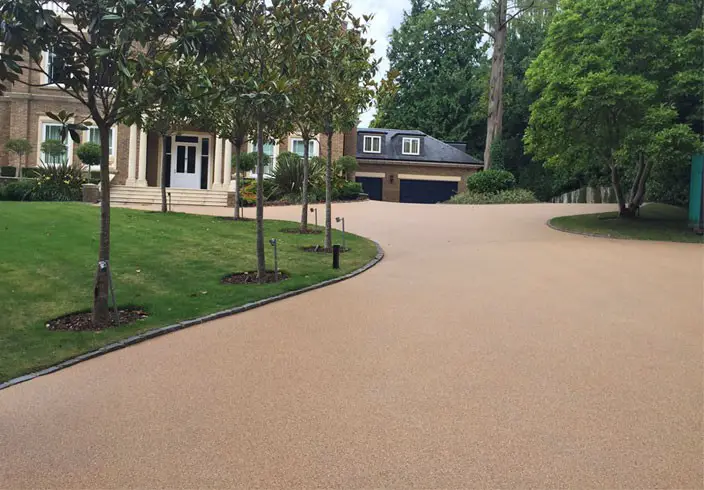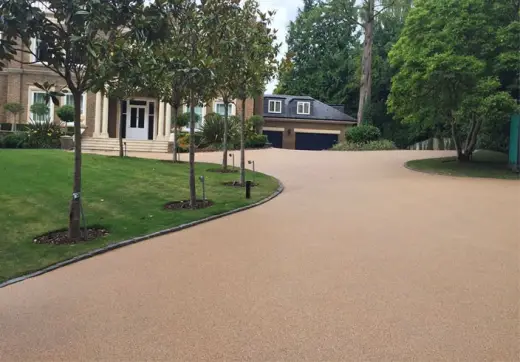Why architects should consider resin driveways guide, Weeds between blocks, Resin non-slip surface advice
Why architects should consider resin driveways advice
17 April 2023
Architects are often faced with a tough decision when it comes to designing a driveway for their clients – what driveway material to use? One option that many might consider the traditional choice is to use permeable blocks, which allow rainwater to filter through to the ground below. Another option, however, which could be a more practical solution, is to use resin. This is a popular choice due to its durability and low maintenance requirements. In this article, we will discuss the advantages and disadvantages of resin driveways over permeable blocks.
Why architects should consider resin driveways at home
Costs
The cost of a resin driveway is often lower than that of permeable blocks. This is because resin can be poured onto an existing surface, which means there is no need to excavate the ground or lay a new base. On the other hand, permeable blocks require a significant amount of groundwork, including the excavation of the site and the laying of a new base. This can add considerable cost to the project.
Safety
In terms of safety, resin is generally considered to be the safer option. Permeable blocks can become slippery when wet, particularly in colder weather when ice and snow can build up on the surface. This can create a hazard for pedestrians and drivers, with car tyres potentially losing grip on wet or icy surfaces – unless the appropriate tyres are fitted. Resin, on the other hand, is a non-slip surface that provides good traction even in wet conditions.
Maintenance
Both resin and permeable blocks require minimal maintenance, but resin is generally considered to be the lower maintenance option. Resin driveways can be cleaned easily using a pressure washer, and there is no need to worry about weeds growing between the blocks. With permeable blocks, there is a risk of weeds growing through the gaps between the blocks, which can require regular maintenance to keep them under control.
Durability
Resin is a highly durable material that can last for many years with proper care and maintenance. It is resistant to cracking, fading, and staining, making it an ideal choice for high-traffic areas such as driveways. Permeable blocks are also durable, but they can be prone to cracking and displacement over time, particularly in areas where the ground is prone to subsidence.
The safe, affordable and durable choice
There are many advantages to using resin for driveways over permeable blocks. Resin is generally cheaper, safer, and requires less maintenance than permeable blocks. It is also more durable and resistant to damage, making it a smart choice for homeowners who want a long-lasting, low-maintenance driveway.
While permeable blocks do have their advantages, particularly in terms of environmental sustainability, architects should consider the specific needs of their clients when designing a driveway and weigh up the pros and cons of each option before deciding.
Comments / photos for this guide to Why architects should consider resin driveways advice page welcome
Property Designs
Glasgow Architecture Designs – architectural selection below:
Comments / photos for the Why architects should consider resin driveways advice guide page welcome




